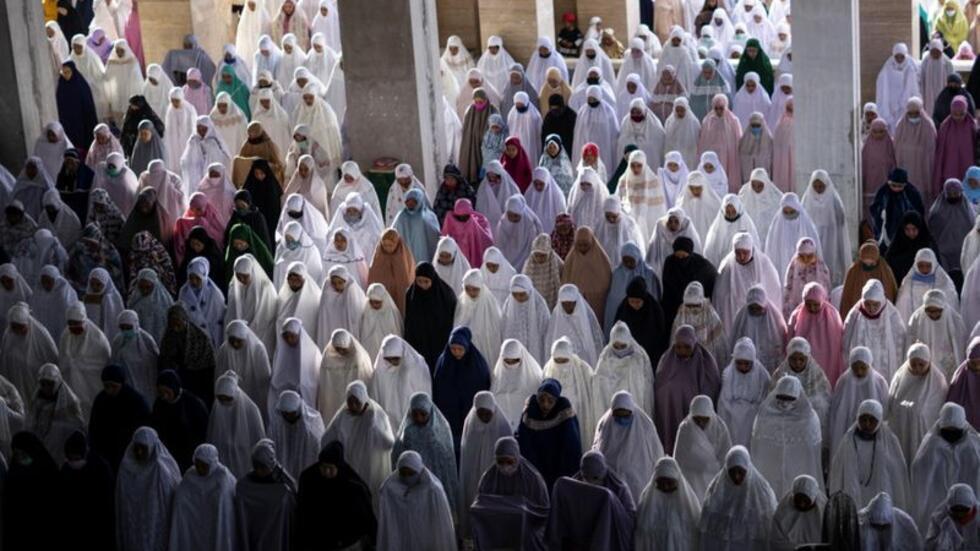French Muslims urged to accept Covid vaccination as Ramadan fast begins
Surging numbers of coronavirus cases in many parts of the world overshadowed the start of the Muslim holy month of Ramadan on Tuesday, with festivities curtailed by fears of contagion. French Muslims have been advised to get themselves vaccinated, the head of the French Muslim Council assuring the faithful that an injection does not constitute breaking the daytime fast.
Issued on:

From Indonesia to Egypt, Muslims around the world started Ramadan after religious leaders confirmed the month of fasting would begin on Tuesday.
Ramadan will begin on Wednesday in Iran.
This is the second year that the holy month will be observed under coronavirus lockdown conditions.
During Ramadan, observant Muslims refrain from eating and drinking from dawn to dusk, and traditionally gather with family and friends to break their fast in the evening.
Despite calls from several religious figures for Muslims to avoid vaccination during the holy month, the President of the French Muslim Council, Mohammed Moussaoui has insisted that an anti-Covid injection can not be considered as a breaking of the daytime fast.
A l’approche de Ramadan et face à la recrudescence des actes antimusulmans, le CFCM appelle les musulmans de France à la vigilance - CFCM https://t.co/CzaS70n93Q
— Mohammed Moussaoui (@PresidentUmf) April 11, 2021
He has urged the faithful to get themselves vaccinated, even during the month of Ramadan.
Dangers posed by family gatherings
Although the 7pm curfew currently in force all over France will enable many Muslims to visit their local mosque for evening prayers, there are fears that large family gatherings for the traditional fast-breaking meal after sunset could become infection hotspots.
Religious authorities have called for a strict limit to group prayers, which should be held only once each day, with a minimum number of people, in the open air if possible, while observing maximum distance and using masks.
The situation is particularly difficult in Algeria.
There, the holy month opens in the shadow of water rationing, sharp price rises for basic foodstuffs, and a deep economic recession which has been exacerbated by the Covid crisis.
There are similar difficulties in Iraq, where price rises, a decline in purchasing power,and rising unemployment mean that many Iraqis will enter the Muslim fasting month of Ramadan with a feeling of dread.
On top of price hikes, Covid-19 restrictions such as lockdowns and curfews have destroyed jobs, especially in the part-time sector on which many Iraqis rely following decades of conflict.
Iraqis trapped in a vicious circle
The UN Food and Agriculture Organisation says Iraqis are trapped in a vicious circle.
"Over 90 percent of small and medium enterprises in the food and agriculture sector reported being severely to moderately affected by the pandemic. To cope with decreased revenue, more than 50 percent either let staff go or reduced salaries," the United Nations' organisation says.
The government of Indonesia, the world's most populous Muslim-majority nation, has imposed limits, with mosques permitted to host congregants at a maximum of 50 percent capacity. Worshippers are required to wear masks and bring their own prayer mats.
Several regions in Indonesia have banned gathering for fast-breaking and religious leaders have encouraged people to pray at home in certain zones where virus cases are spiking.
Daily newsletterReceive essential international news every morning
Subscribe